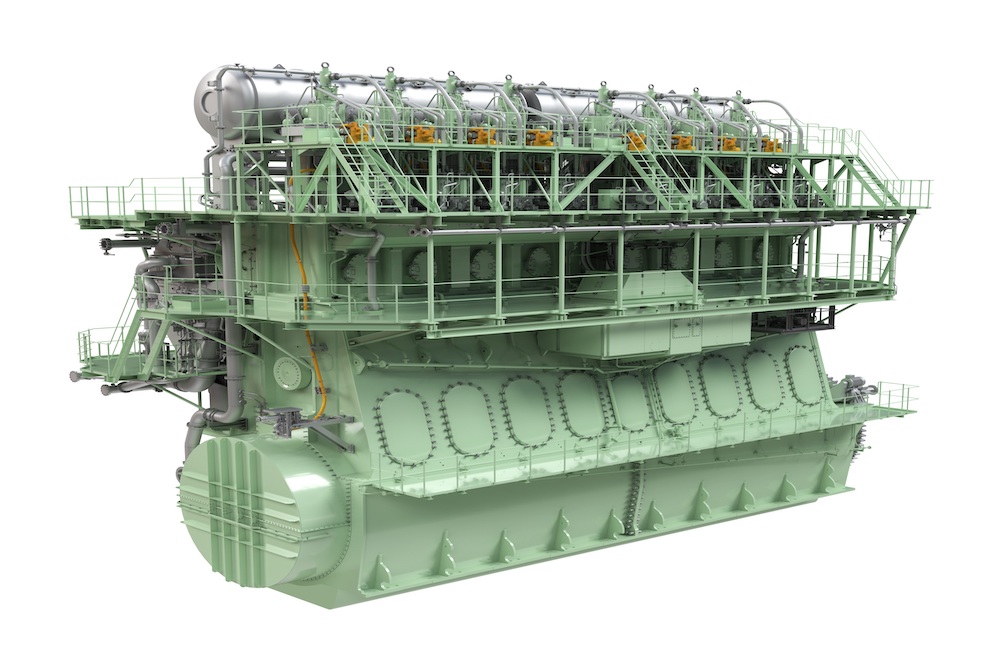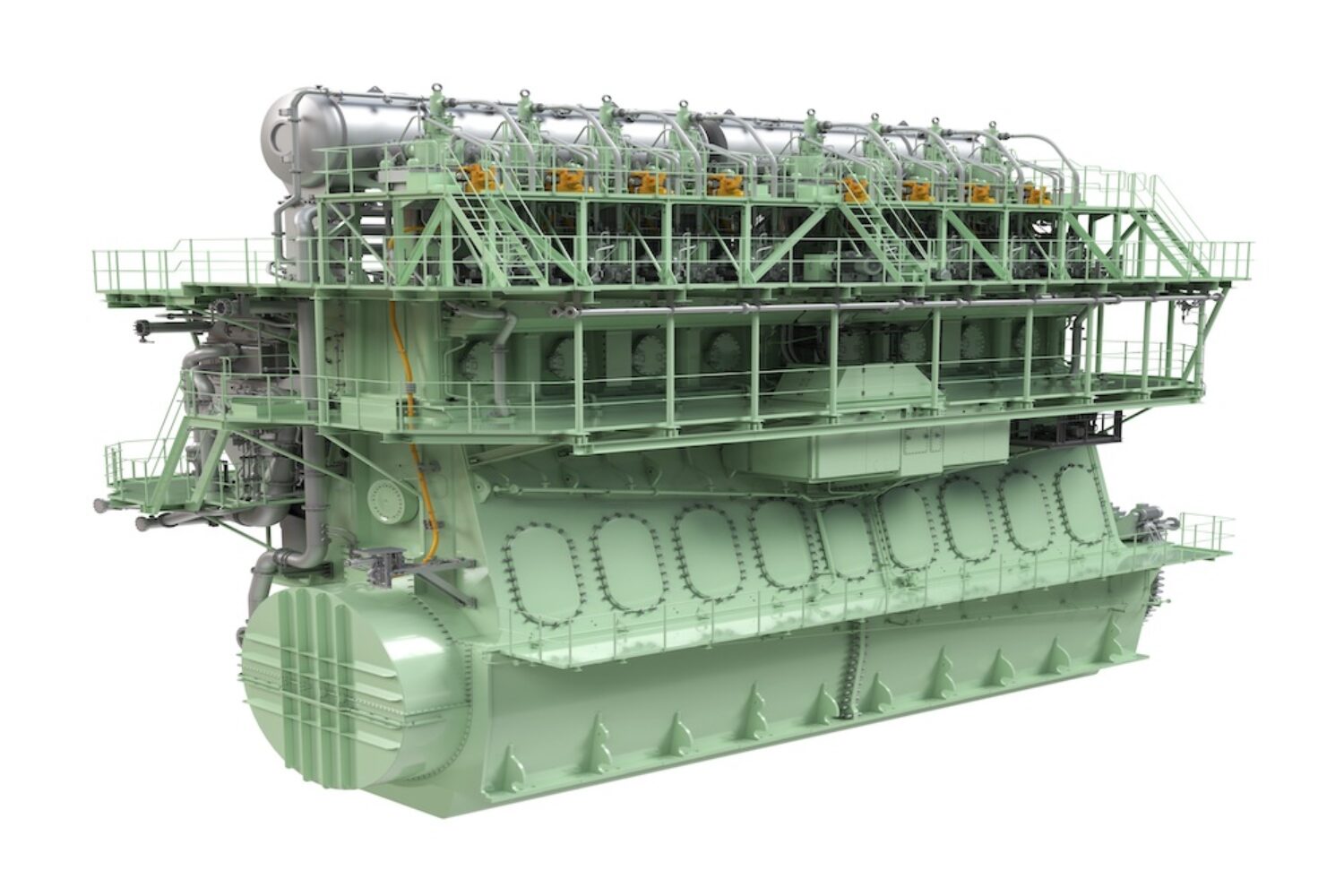The Chinese shipyard New Times Shipbuilding, based in Jiangsu Province, has ordered 12 “8G95ME-GI Mk. 10.5” main engines (GI for gas injection) from MAN for the construction of 12 container ships, each with a capacity of 18,000 TEU, for the Singapore-based shipping company Eastern Pacific Shipping (EPS).
The LNG propulsion engine ME-GI (GI for Gas Injection) from MAN Energy Solutions can be used on board a wide variety of ships, including RoRo ships, PCTCs, container ships, bulk carriers, tankers, and LNG tankers. According to MAN, the two-stroke technology works without the methane slip emissions typical of comparable engines.
According to MAN, the diesel principle not only gives the ME-GI engine high operational stability and efficiency, but also ensures reliable operation during load changes in gas mode with the normal addition of pilot oil quantities. In addition, the ME-GI operating principle enables seamless switching between gas and diesel operations. MAN Energy Solutions has also developed a ME-LGI dual-fuel engine (LGI for Liquid Gas Injection), which expands the company’s dual-fuel portfolio and enables the use of sustainable fuels such as green methanol.
“This new, extensive order reflects the great momentum that the ME-GI engine has experienced during the current construction boom in the very large container ship segment,” emphasises Bjarne Foldager, Country Manager Denmark at MAN Energy Solutions.
MAN’s ME-GI can also run on biomethane and synthetic natural gas
Thomas S. Hansen, Head of Two-Stroke Sales and Promotion, MAN Energy Solutions, adds: “The ME-GI’s mature technology offers a number of advantages, not least its guaranteed, extremely low methane slip values, which make it the most future-proof methane engine on the market.” It also has the highest fuel efficiency in its class, which explains why the G95ME-GI Mk. 10.5 has been specified for more than 60 newbuilds of very large container ships in the last two months alone. “As the ME-GI can also run on biomethane and synthetic natural gas, its net-zero emissions make it a good option for shipping companies on the road to decarbonisation.”














